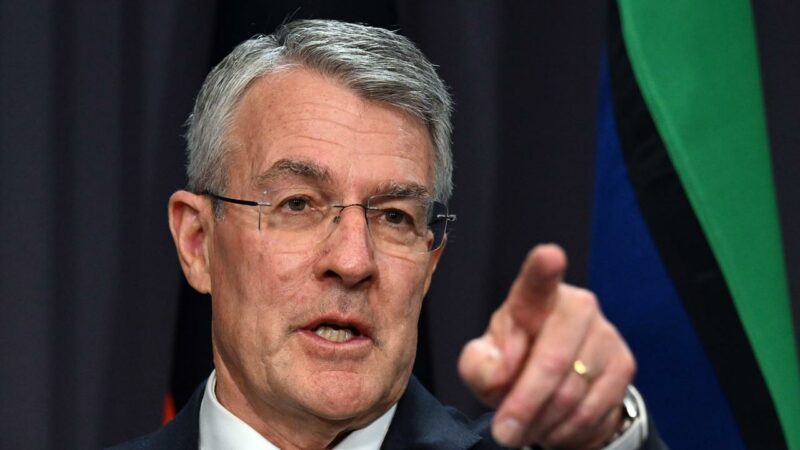The day has finally arrived: an Australian government today made good on its commitment to legislate an integrity watchdog, the National Anti-Corruption Commission (NACC). But there is one major bone of contention … secrecy. Callum Foote reports on the spectre of a Secret National Anti-Corruption Commission (SNACC).
The actual legislation is yet to be revealed; the devil in the detail if you like, and there will be much in that. Yet, Attorney-General Mark Dreyfus has unveiled the broad remit for Australia’s National Anti-Corruption Commission (NACC). In a speech to parliament and follow-up media release Labor detailed the broad points of its proposed anti-corruption body and for a party that ran on an integrity campaign, the plans appear to tick all the boxes, save one.
With only one sitting day left to go this week the legislation in all its detail is expected tomorrow. While PM Anthony Albanese and federal Labor must be congratulated on coming good on an election promise to deliver a powerful and independent anti-corruption commission, something the previous government promised but failed to achieve, the overview provided by the Prime Minister and Attorney-General has revealed some prospective shortcomings.
Yes, it has broad powers, it is independent, retrospective: it promises procedural fairness and oversight, and it is reasonably well funded at $232m over four years. Yet, hearings will be held in private, at least most of them.
To quote the wording of the PM’s press release: “Public hearings: The Commission will have the power to hold public hearings in exceptional circumstances and where it is in the public interest to do so”.
What does a lawyer deem to be “exceptional circumstances”, or the “public interest” for that matter. For it may have to be both.
Public hearings
Helen Haines, the independent member for Indi, has been an outspoken advocate for the necessity of public hearings in any new federal anti-corruption body.
“For this commission to truly be the best it can be and have the trust of the Australian people, we need time to debate these issues in the public sphere, through the committee process,’’ Haines said earlier this month.
‘’This is about setting the commission up for success, not compromising and getting it wrong. It’s a once-in-a-generation opportunity to get the best integrity model possible and the most important thing is that parliament works constructively to get it right.”
Haines brought forward her own federal anti-corruption commission legislation last year.
However, it appears as though Labor has taken a decided step back from the transparency wanted by integrity experts and politicians.
Haines told reporters at a doorstop today that this was a particular area of interest for her.
The high threshold, that both there be exceptional circumstances and on top of that that it is in the public interest to have public hearings indicates that these would occur very seldom.
Nor will the findings of secret hearings be made public, with Labor charging the commission to only “refer findings that could constitute criminal conduct to the Australian Federal Police or the Commonwealth Director of Public Prosecutions.”
Is there enough money?
The funding of the NACC too falls short of the hopes put forward by its proponents. “The Government has committed $262 million over four years for the establishment and ongoing operation of the Commission,” the media release stated.
This amount, $65.5 million per year, is under the $100 million recommended by Griffith University academic A.J. Brown and endorsed by Grattan Institute program director Kate Griffiths.
Whistleblower protections
High on the list of priorities for experts and cross-bench politicians was beefing up whistleblower protections.
In an open letter signed by 15 members of the federal parliamentary cross-bench, “Strong whistleblower protection, including through a whistleblower protection commissioner” were the first priority.
The need for whistleblower protections was also highlighted by Transparency International CEO Clancy Moore. “We also want to see a clear commitment from the Government to strengthen whistleblower protections. We strongly recommend that the new National Anti-Corruption Commission have a whistleblower protection commissioner – a role which can provide a one-stop-shop for whistleblower protection for the federal public and private sector,” Moore said in advance of today’s announcement.
Albanese and Dreyfus’s media release made no reference of whistleblowers except to say the NACC would be taking referrals from whistleblowers and the public in its investigation of “serious or systemic corrupt conduct”. Again, what is “serious” and “systemic”? We may find out when the exact wording of the legislation is released.
Jurisdiction
The cross-bench was hoping to broaden the scope of investigation of any integrity body to include so-called “grey” corruption which is conduct that does not meet the letter of the law definition but still reached a threshold of misconduct.
The government’s media release highlights this as a priority, stating that the body’s role will be “to investigate serious or systemic corrupt conduct across the Commonwealth public sector by ministers, parliamentarians and their staff, statutory officer holders, employees of all government entities and government contractors.”
Haines, in her doorstop interview this afternoon, said that she was “quite satisfied that [Dreyfus’s] bill looks very similar to the bill I put to parliament around a broad definition of corruption in that it needs to be serious or systemic and that it needs to shine a light on whoever is endeavouring to corrupt public processes.”
The independent MP also cautions that it is too early to recommend amendments to the bill and that she will wait for the legislation to be released tomorrow before scrutinising government’s proposal in depth.
We will know more soon enough, even though we may only get to know a tiny fraction about its investigations.
Angst over corruption watchdog, first Queen’s death, now fear of Dutton deal
Callum Foote was a reporter for Michael West Media for four years.

